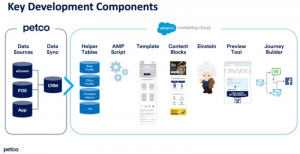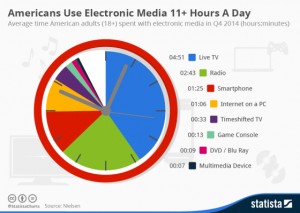— September 19, 2017

VideoDocPres / Pixabay
Over the past few years, many merchants – regardless of what kind of businesses they operate or how big their companies are – have come to reconsider their previous ways of handling purchases. Many decided to buy point-of-sale devices for the first time, while others were led to think about the ways modern payment technologies may be able to help their businesses take a big leap forward when it comes to security and customer engagement.
To that end, it’s worth thinking about the most common reasons businesses – and smaller ones in particular – may want to adopt or change their POS options these days, as a means of keeping up with changing preferences and security standards. The better they can keep up with industry-recommended best practices for point of sale security and adoption, the better off they’re likely to be going forward.
1) Staying on Top of the Latest Trends
While many managers have at least thought about making the switch to a point-of-sale device that can handle EMV or mobile purchases, some may still be on the fence, according to Digital Transactions. But the fact is, these new purchase types are the way the whole payments ecosystem is now heading, and merchants may need to consider such a move for themselves.
The vast majority of businesses nationwide now accept EMV, and most consumers also have at least one EMV card in their wallets these days. As a consequence, simply having the ability to accept such transactions can be a boon for any business, in addition to providing themselves and their customers with greater security.
2) Navigating Affordability
Many businesses may shy away from payment card processing of all kinds simply because of the cost involved, according to Shopify. For this reason, it may be wise for companies to look at their options for finding POS resellers who can meet their needs both in terms of technology and ongoing costs. This is especially true for first-timers who may not have as much operational knowledge when it comes to dealing with these issues.
In general, when resellers can explain what they do for merchants – and why it costs what it does – in plain language, that can provide a big boost for those getting on board with modern payment processing.
3) They Want to Branch Out
For many smaller businesses that want to find a new revenue stream, the ease of modern e-commerce provides a crucial option, according to Business News Daily. The good news is that modern POS can meet both e-commerce and brick-and-mortar needs for just about any business, and all it may take is working with a reseller to determine the best path forward. Having the ability to handle both real-world and online transactions through the same POS can go a long way for any small business.
4) Getting Better Data
Another key benefit of modern POS is that it comes with more tertiary features than ever before, which give merchants the power to collect and harness more information than ever from a single source, Business News Daily added. Now, POS platforms collect all kinds of data on every transaction to help merchants identify areas where they can potentially improve their operations, from managing the supply chain to better catering to evolving consumer preferences in real time. That kind of knowledge can really empower better decision-making for years to come.
5) Saving Time and Impressing Customers Simultaneously
Another big innovation in point-of-sale technology in the past few years has come for restaurants specifically, according to PointofSale.com. Tableside POS devices are all the rage among chain restaurants, which favor the devices for their ease of use and help in increasing the efficiency of any operation. Now, smaller restaurants are taking the same step because of both that ease of efficiency and people are coming to expect this kind of ease in ordering.
6) Keeping Up with Consumer Expectations
Indeed, the idea that larger merchants are taking steps to innovate on POS – often because they have the budget to do so somewhat freely – is something that should give reluctant small business owners pause, according to Payments Source. As consumers become more accustomed to ubiquitous next-generation POS technology at the big stores where they shop frequently, it’s vital for smaller competitors to do what they can to keep up. After all, if consumers already expect to be able to pay with EMV – which is a technology that’s still relatively new to them – just about anywhere, the need to keep up with those trends quickly becomes self-evident.
7) Being Ready for What Comes Next
Upgrading to modern POS isn’t just a good idea for the present, but also for the future, according to Silicon NYC. Having the ability to upgrade now allows merchants to familiarize themselves with the latest and greatest options in payment processing before the next generation of options arrives. “Skipping” a generation isn’t likely to be a wise move, because merchants could find themselves in the dark about where they should turn, and how best to take that next step.
Focusing on smaller steps to meet ever-evolving needs will be crucial for any merchant as they try to navigate the POS environment today. After all, if the goal is to simultaneously make owners’ lives easier and provide more options for their customers, the wide variety of options now available is just waiting to meet those needs.
Business & Finance Articles on Business 2 Community
(77)








